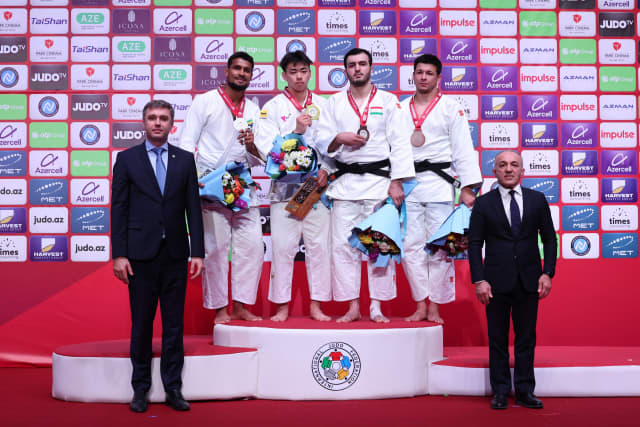In the second half of the draw, it was Dota Arai (JPN) who was followed closely. A bronze medallist at the 2024 World Championships, he exploited the new rules wonderfully by scoring a waza-ari and two yuko, the first two scores with uchi-mata and the third with harai-goshi. In the semi-final against Dzhakhongir Madzhidov (TJK), Arai had to settle for a yuko during the golden score period via a counter.
The final therefore brought together Brazil and Japan, thanks to Leonardo Goncalves and Dota Arai. The magic of judo is that a contest can be 4 minutes long or even longer with golden score, but it can also be less than ten seconds long, which was the case here, with Arai performing a perfect de-ashi-barai at the first contact. He earned the ippon in style for the 8th gold medal for Japan.
It was Mukhamed-Ali Mataev (IJF) and Dzhakhongir Madzhidov (TJK) who stepped onto the tatami for the first bronze medal. There are contests where one judoka wants it more than the other and this was the case here, with Dzhakhongir Madzhidov being more active and pushing Mataev to be penalised three times. The bronze medal was for Tajikistan.
Azhdar Baghirov (AZE) offered the host country another chance for a medal by facing Niiaz Bilalov (IJF) for the second bronze. With a small rear technique, Bilalov took the lead with a yuko. Baghirov increased the pace to push his opponent but then Bilalov kept the distance and controlled the contest until the final gong to win the bronze medal.





